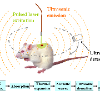Photoacoustic imaging (PAI) represents an innovative biomedical imaging modality that harnesses the advantages of optical resolution and acoustic penetration depth while ensuring enhanced safety. Despite its promising potential across a diverse array of preclinical and clinical applications, the clinical implementation of PAI faces significant challenges, including the trade-off between penetration depth and spatial resolution, as well as the demand for faster imaging speeds. This paper explores the fundamental principles underlying PAI, with a particular emphasis on three primary implementations: photoacoustic computed tomography (PACT), photoacoustic microscopy (PAM), and photoacoustic endoscopy (PAE). We undertake a critical assessment of their respective strengths and practical limitations. Furthermore, recent developments in utilizing conventional or deep learning (DL) methodologies for image reconstruction and artefact mitigation across PACT, PAM, and PAE are outlined, demonstrating considerable potential to enhance image quality and accelerate imaging processes. Furthermore, this paper examines the recent developments in quantitative analysis within PAI, including the quantification of haemoglobin concentration, oxygen saturation, and other physiological parameters within tissues. Finally, our discussion encompasses current trends and future directions in PAI research while emphasizing the transformative impact of deep learning on advancing PAI.
翻译:暂无翻译



